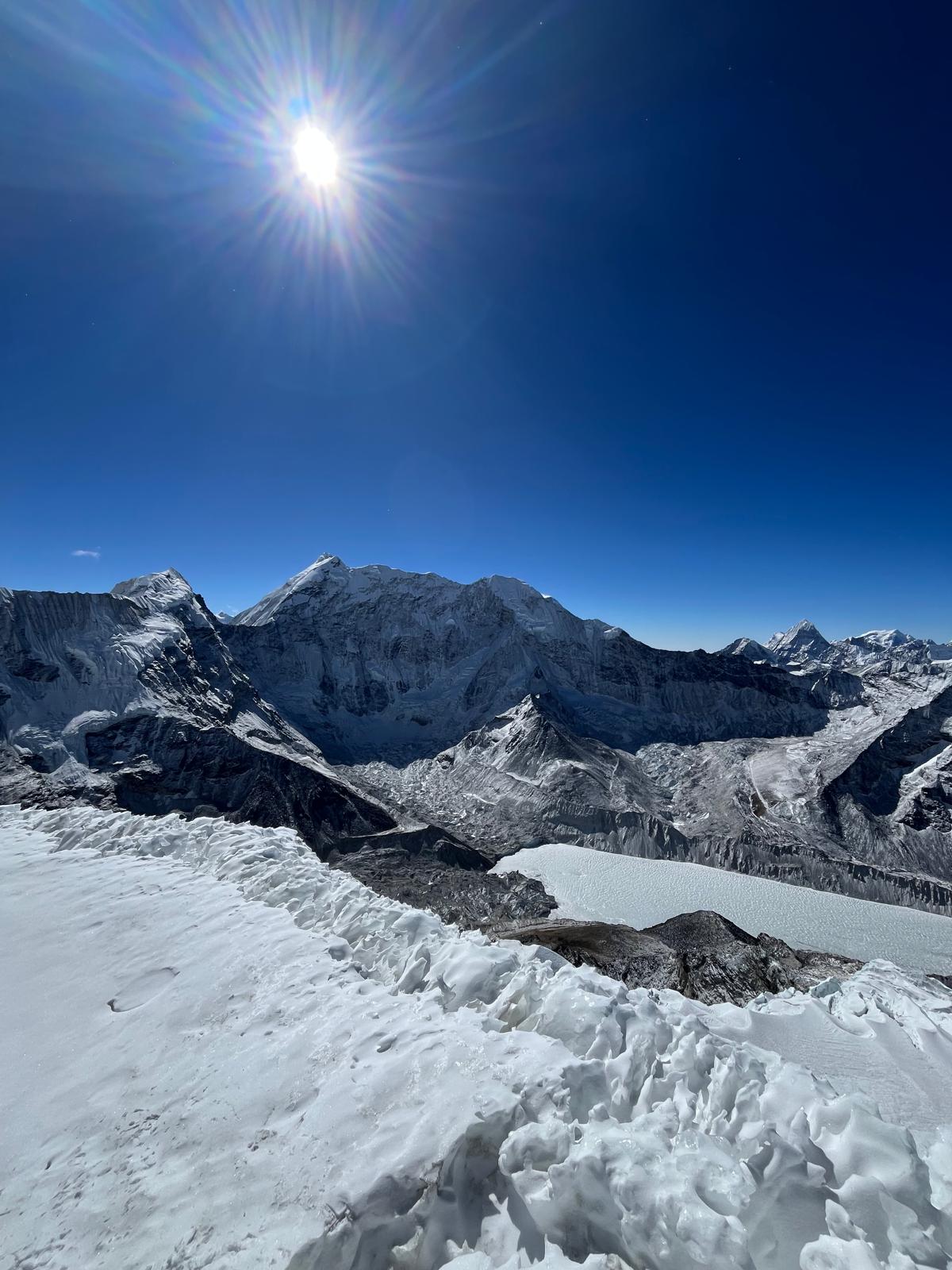When to Climb Island Peak for the Best Weather and Views

Strong 8k brings an ultra-HD IPTV experience to your living room and your pocket.
As a travel guide who has stood on the top of Island Peak with many excited trekkers, one of the most common questions I get is: “When is the best time for Island Peak Climbing?” And honestly, it is a great question. Because choosing the right time can be the difference between a great memory and a tough struggle.
Island Peak (also called Imja Tse) is one of Nepal’s most popular trekking peaks. It is not too technical, which makes it perfect for adventurous beginners. But don’t be fooled it still gives you that real Himalayan mountaineering feel. To enjoy it fully, you’ll want good weather, clear views, and safe trails. That’s why spring (March to May) and autumn (late September to November) are the top choices for most climbers. Let me walk you through why these seasons work best, and what to expect from each.
Why Spring Is a Favorite (March to May)
Spring in the Himalayas is like a breath of fresh air after a long winter. By March, the cold starts to ease. The days become warmer, and the skies clearer. If you’re dreaming of long mountain views and fair weather, this is your season.
In April and May, the trails leading to Island Peak bloom with rhododendrons and other wildflowers. The forests and hills come alive with color. Higher up, snow still covers the peaks, making the views even more magical. You’ll likely get clear mornings, which are perfect for climbing.
More importantly, the weather is predictable. You won’t have to worry too much about storms or delays. The days are longer too, giving you more daylight to walk or rest.
One thing to note: spring is also a busy time. Everest climbers are out in full swing, and the trails can feel crowded. But for Island Peak Climbing, this means the teahouses are open, guides are available, and everything runs smoothly.
Why Autumn Is Just as Good (Late September to November)
Autumn is my personal favorite. After the summer monsoon washes the dust away, the mountains look sharper and cleaner. The air feels fresh. September can be a bit wet in the beginning, but from late September to November, you’re in for a treat.
The skies are crystal clear, the temperatures are cool but not freezing, and the views are unbelievable. Whether you’re crossing the trail from Chhukung or standing on the summit of Island Peak itself, everything looks crisp and vivid.
This season is also more stable in terms of weather. Fewer chances of sudden snowfall or clouds blocking your summit day. The only challenge? Nights get colder as you move into November. So make sure to pack good layers.
Just like spring, autumn sees many trekkers and climbers. But there’s a good energy in the air. You’ll meet people from all over the world, and it’s easy to find experienced guides and porters during this time.
What About Winter and Summer?
You can climb Island Peak in winter (December to February), but I usually don’t recommend it unless you’re really used to cold and snow. The temperatures drop a lot, especially at night. Sometimes the summit feels like the coldest place on Earth! Also, snow can block parts of the trail, and some teahouses close for the season.
Monsoon or summer (June to August) is also tricky. The trails are wet and slippery, and flights to Lukla (the main airport) often get delayed. Clouds often hide the mountain views. Leeches on lower trails don’t help either.
Unless you're looking for a very quiet and challenging experience, I’d avoid these two seasons.
Final Tips from a Guide
If you’re planning your Island Peak Climbing adventure, here are a few final suggestions:
- Book early if you're climbing in peak season (spring or autumn). Guides and permits get filled fast.
- Train well. Even though it’s called a trekking peak, Island Peak is still a real mountain at 6,189 meters. A mix of hiking, strength training, and cardio will help.
- Acclimatize properly. I always suggest combining the climb with a trek to Everest Base Camp or at least spending extra days in Chhukung.
- Pack smart. Don’t go ultra-light, but don’t carry too much either. The right gear makes a big difference—especially warm gloves, crampons, and a good headlamp.
Note: IndiBlogHub features both user-submitted and editorial content. We do not verify third-party contributions. Read our Disclaimer and Privacy Policyfor details.


